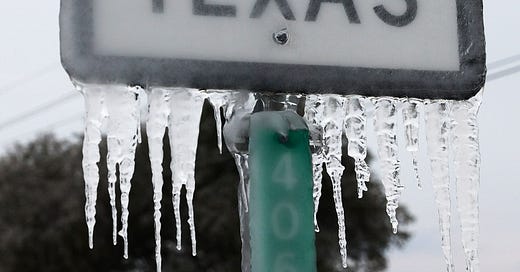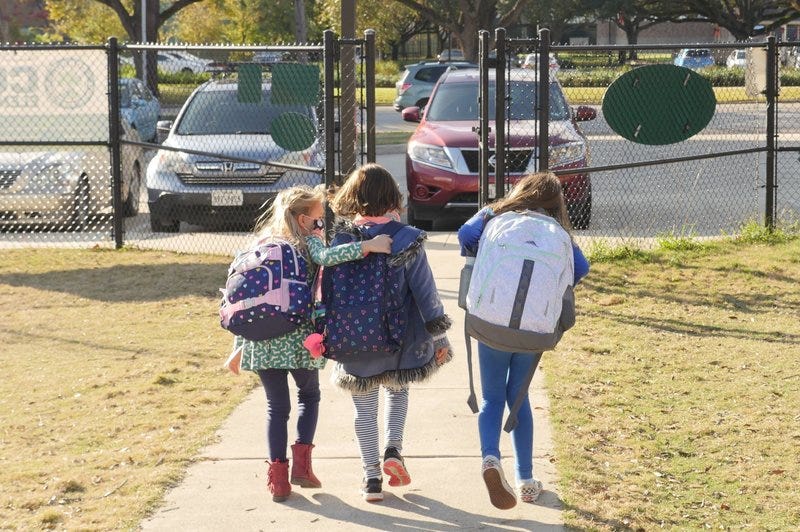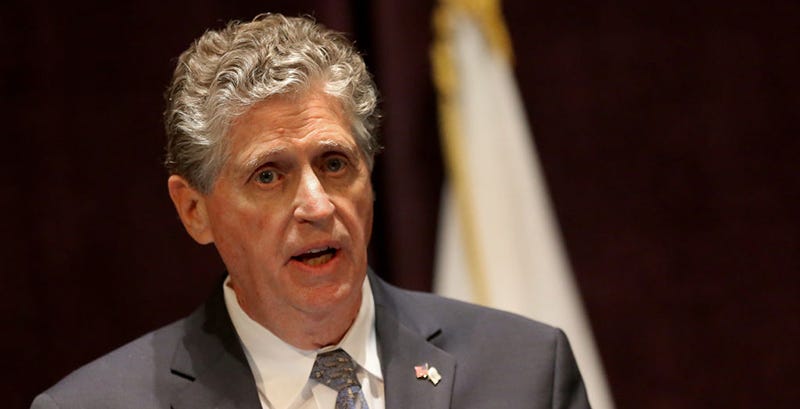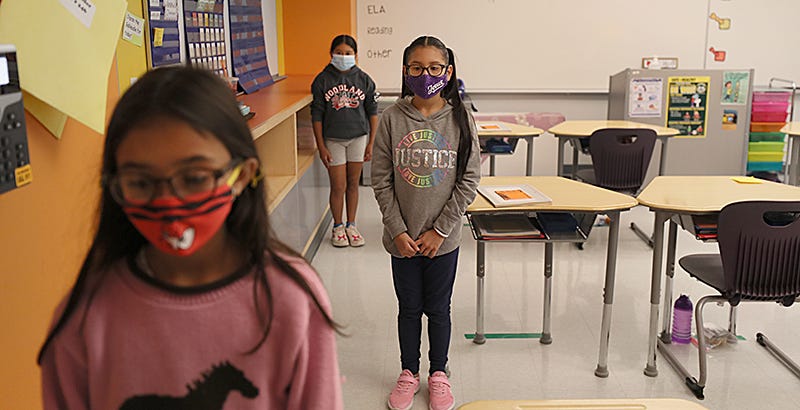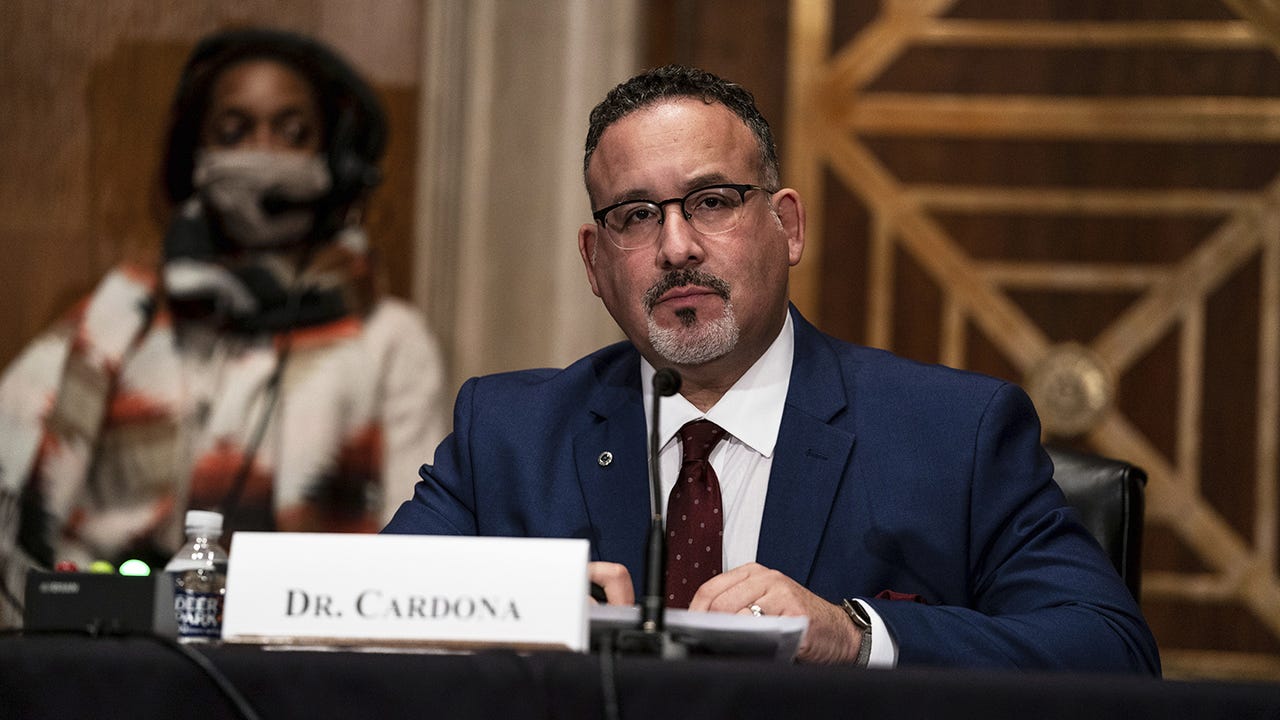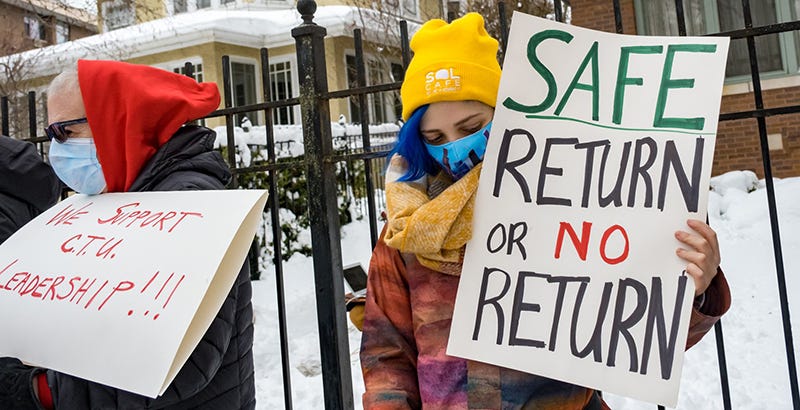On my weekend jog I listened to a podcast that reviewed the layers of brokenness undergirding the emergency in Texas. The story outlined how the current crisis was caused by extreme weather, aging power infrastructure, and unintentional social policy. One expert reported that the power infrastructure in Texas was actually one that policymakers across the country aimed to build because it is cost-effective for consumers. One thing I took away from the emergency in Texas, which parallels my own work in education policy, is that one good thing may not be enough to ensure prosperity and health for our communities.
The reporter outlined how Texas will need to rebuild their policy infrastructure around utilities to be more adaptive. We are experiencing similar pressure in schools to redefine education post-COVID. I strongly advocate for intentional changes to our federal education policies as we pull out of this school year — policies that better serve our modern society and more diverse youth. Like Texas, it will be critical that we consider more than one good thing and instead design adaptiveness into our modern policy infrastructure.
FEDERAL
Regardless of how any of us feel about educational assessment in the 2020-2021 school year or systemwide COVID-19 testing in the coming year, there is no question that the Biden administration will redefine the function of data and evidence in policymaking and education policy infrastructure.
Senators advance Cardona for Education, Walsh for Labor | Roll Call
Influx of Unaccompanied Minors Along Southern Border Could Pose Test for Schools | The74
Education Dept. Launches First Federal Effort To Track School Reopening | NPR
Ed Dept: Schools can't exit identification statuses in 2020-21 | USED
House education committee advances major piece of COVID-19 relief package | Congressman Bobby Scott
Petition for declaratory relief and petition for rulemaking allowing additional use of E-Rate funds for K12 cybersecurity | CoSN, SETDA, other education orgs
Stabilizing child care requires more than emergency COVID-19 relief funds | Brookings
STATE POLICY
With the pandemic putting pressure on many of our assumptions about how schools function (e.g. career and technical and early childhood education), state and local education agencies are in a position to pass policies this school year that may redefine the ways students engage in learning.
From Pandemic to Progress: Eight Education Pathways for COVID-19 Recovery | Bellwether Education
N Carolina education board approves new social studies rules | AP
House bill would require schools to employ at least one school counselor | MI
Bill that allows younger students to participate in internships heads to Oklahoma Senate | OK
How Jeb Bush’s ExcelinEd Is Tackling the Next 5 Years | EdWeek
Tracking how the coronavirus is impacting school districts | EdDive
REOPENING SCHOOLS
The CDC and USED released revised guidance for reopening schools last week, but the decision to reopen schools is based on the trust and facilitation occurring between local leaders, politicians, and stakeholders. What we’ve learned: nothing is the same anywhere and everything feels similarly confusing everywhere.
Why Aren’t More Public Schools Opening? | Rick Hess
Is Biden Lowering the Bar for What ‘Reopening Schools’ Means? | EdWeek
Deal that would reopen Chicago schools clears key hurdle. Now teachers decide. | Chalkbeat
ED Announces National Survey to Gather Critical Data on School Reopening | USED
Operational Strategy for K-12 Schools through Phased Mitigation | CDC
New CDC guidance: Vaccinate teachers, but don’t wait to open schools | Chalkbeat
Covid-19 Testing in K-12 Settings: A Playbook for Educators and Leaders | The Rockefeller Foundation
Marin County: Leveraging Education and Public Health Partnerships to Support School Reopening | LPI
Biden’s soft touch might be the only hope for schools in blue districts to reopen | Fordham
ASSESSMENT AND ACCOUNTABILITY
Collectively, we know that our students identifying as Black, Indigenous, Latinx, and lower socioeconomic status are faring worse than white affluent students, but — we won’t know until we measure their academic, social, and mental outcomes. That said, our education communities are still going round-and-round about when and how to show up for them so we can step in and provide the necessary on-ramps to the rest of their successes.
Educational Assessments in the COVID-19 Era and Beyond | NAEd
Indiana lawmakers could overhaul accountability, end school takeovers | Chalkbeat
Colorado lawmakers push to make SAT or ACT optional for college admissions | CO
To test or not to test? Educators weigh the value of standardized testing during a pandemic | Hechinger Report
‘Data’ Has Become a Dirty Word to Public Education Advocates. It Doesn’t Have to Be | EdWeek
How waivers could be the hundred-and-first blow against testing | Assessment HQ
A reply to the anti-testers | Fordham Institute
‘Data’ Has Become a Dirty Word to Public Education Advocates. It Doesn’t Have to Be | EdWeek
TEACHING AND LEARNING
Educators are the glue holding together one fleeting moment of learning and engagement with another — regardless of where we are with union and vaccine negotiations, nobody can deny that fact.
Districts brace for pandemic-related special ed litigation | EdDive
How are schools remaining IDEA compliant during COVID-19? | K12Dive
How Can Learning Management Systems be Used Effectively to Improve Student Engagement? | CRPE
A Time-Honored Trade Is Keeping Youth Afloat During COVID-19 | Forbes
It takes a village: The pandemic learning pod movement, one year in | CRPE
Using texts to boost Pre-K to 3 learning during the pandemic |EdDive
Promising Practices: How a network of male teachers of color expanded leadership opportunities | EdDive
Changes in Discipline Following State Policy Reform in Oregon | REL Northwest
EDUCATION POLICY RESEARCH
The disruption of business-as-usual across our communities has created fodder for a new, modern national research agenda. We are seeing the beginnings of these lines of inquiry.
All States Close but Red Districts Reopen: The Politics of In-Person Schooling during the COVID-19 Pandemic | EdWorking Paper
Identifying and Producing Effective Teachers | EdWorking Paper
Apart but Connected: Online Tutoring and Student Outcomes during the COVID-19 Pandemic | EdWorking Paper
UPCOMING EVENTS
Wednesday, February 24 (12PM ET) Attendance Work’s webinar on Partnerships that Make a Difference: Coordinated Strategies.
Thursday, February 25 (2PM ET) Brookings Institution on how to Address Education Inequality with Next Generation Community Schools.
Thursday, February 25 (1PM ET) Hunt Institute’s webinar on Thinking Creatively to Evaluate Student Learning During COVID-19 | Policymaker Insights on Skip-Year Growth.
Dr. Christine M. T. Pitts serves as Manager of Research and Evaluation at Portland Public Schools. As an Oregonian, raised by a multicultural family of educators, she brings a decade of progressive strategic leadership experience, a transformative vision, and analytic skill to crafting state education policy. An educator and researcher by training, she has conducted legislation, governance, and policy analyses on a wide array of education issues using social network analysis and mixed methods research. In addition, Dr. Pitts is a facilitative leader who deeply understands and co-constructs local and national partnerships across stakeholder groups. Dr. Pitts currently coordinates between state and national policy leaders to investigate and advocate for policies that prioritize racial equity in education. Christine lives with her husband and four children in Portland, Oregon. Follow her on Twitter @cmtpitts.


